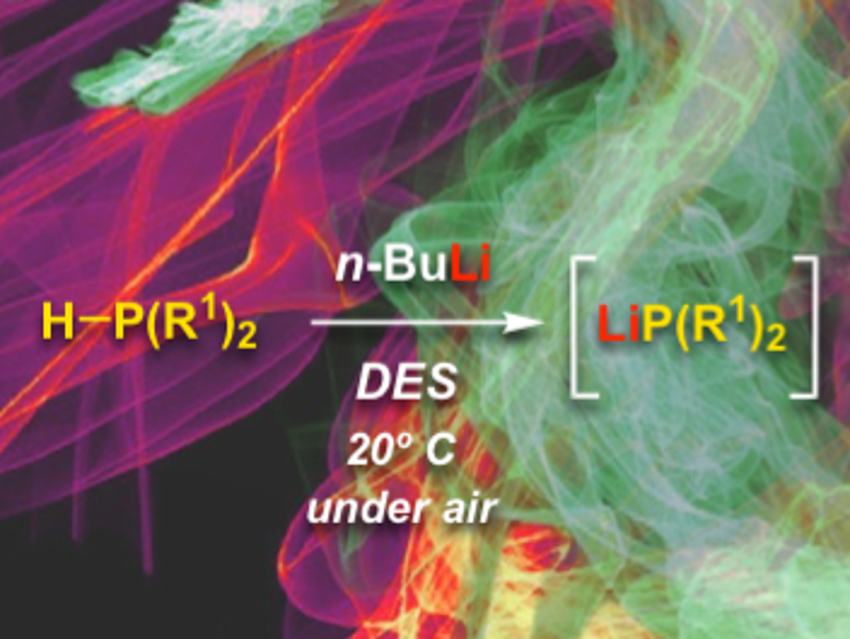Phosphine oxide groups can be useful in medicinal chemistry, are commonly found in natural products and polymers, and are also present in several organocatalysts. The use of highly polarized lithium phosphides (LiPR2) for the introduction of the P=O moiety into molecules usually requires dry organic solvents, inert atmospheres, and low temperatures (up to –78 °C).
Alejandro Presa Soto and Joaquín García-Alvarez, University of Oviedo, Spain, Vito Capriati, University of Bari “Aldo Moro”, Italy, and colleagues have generated highly reactive LiPR2 in a deep eutectic solvent (DES) composed of choline chloride and glycerol. The DES acts as an environmentally friendly reaction medium. The lithium phosphides were prepared by direct deprotonation of secondary phosphines (HPR2) by n-BuLi at room temperature and in the absence of an inert atmosphere.
The in-situ generated LiPR2 can then be used in nucleophilic additions to aldehydes or epoxides (pictured below). These reactions proceed rapidly (3 s reaction time) and chemoselectively under air, providing valuable α-hydroxy- or β-hydroxy phosphine oxides as final products in good yields.

- Fast and Chemoselective Addition of Highly Polarized Lithium Phosphides Generated in Deep Eutectic Solvents to Aldehydes and Epoxides,
Luciana Cicco, Alba Fombona‐Pascual, Alba Sánchez‐Condado, Gabino A. Carriedo, Filippo M. Perna, Vito Capriati, Alejandro Presa Soto, Joaquín García‐Álvarez,
ChemSusChem 2020.
https://doi.org/10.1002/cssc.202001449




![Synthesis of [c2]Daisy Chains via Mechanochemistry](https://www.chemistryviews.org/wp-content/uploads/2025/04/202504_RotaxanesWithSolidStateMechanochemistry-125x94.png)